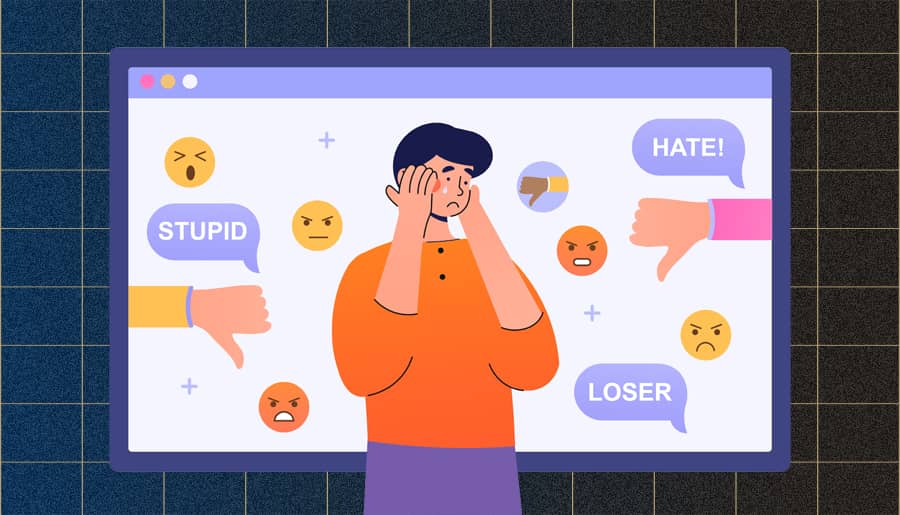Trigger warning: This article contains references to domestic violence, domestic abuse, online harassment, and technology-facilitated abuse.
I still remember the first time I was abused online after writing an article. It was over a food one, where I was the feature image eating too much garlic bread or pineapple pizza. After it was plugged on Facebook, some random dude wrote a bizarrely mean comment about how skinny he thought my wrists were. He went hard, for the kill. It had some huge incel attack energy.
Fortunately, I have never really thought or cared about my wrist circumference. Moreover, I think they’d be pretty jacked from all the years of playing below-average Wii games. So this attack couldn’t be called a smashing success.
However, a lot of Aussies have experienced online harassment on a far more server level than the example that I gave. This has been proven in a study by Australia’s National Research Organisation for Women’s Safety Limited, otherwise known as ANROWS. This joint’s findings were really grim and really important. So here are the takeaways we need to grapple with:
How Many Australians Have Experienced Online Abuse?
According to ANROWS, 50 percent of Australians will be victims of technology-facilitated abuse during their life. Equally as concerning, 25 percent of us Aussie will abuse someone else online.
These facts couldn’t be more serious, as online abuse can really stay with someone. “The impacts of technology-facilitated abuse can include physical, emotional and mental health harms, as well as feelings of fear, paranoia and hypervigilance,” said ANROWS’ CEO, Padma Raman. “Victims and survivors explained that their experiences affected their ability to have personal and professional relationships with others, creating a sense of isolation.”
Related: What Is Coercive Control and Why Is It So Dangerous?
Related: Why You Shouldn’t Share Back to School Photos of Your Children Online
What Does This Mean for Kids Growing Up Now?
If those in power at be don’t take practical steps to prevent online abuse from happening, it’ll be more than just adults that get hurt. Children could potentially grow up receiving online attacks and harassment from younger age than most adults ever did.
What’s more, Raman also believes that more needs to be done to stop technology-facilitated abuse from taking place. “It is vitally important that essential services have a proactive, policy-driven approach to preventing and responding to technology-facilitated abuse,” she stated. “It is also crucial, for the purposes of risk assessment, that technology-facilitated abuse by a current or former partner is understood as a potential risk indicator for multiple forms of domestic and family violence.”
Nevertheless, Raman was also hopeful that practical changes can be made. This is because ANROWS’ research also uncovered why and how folks use online technologies to abuse others. She noted, “The crucial insights about the motivations and methods of those enacting this kind of abuse will improve the programs, training and outreach we provide to frontline services supporting people experiencing technology-facilitated abuse.”
If you or anyone you know is struggling and needs support, call 1800RESPECT on 1800 737 732 or Lifeline on 13 11 14, both of which provide trained counsellors you can talk with 24/7. You can also talk to someone from 1800RESPECT via online chat. If you are in immediate danger, call 000.
Read more stories from The Latch and subscribe to our email newsletter.







